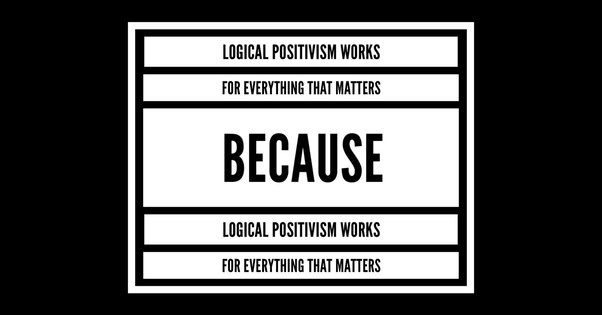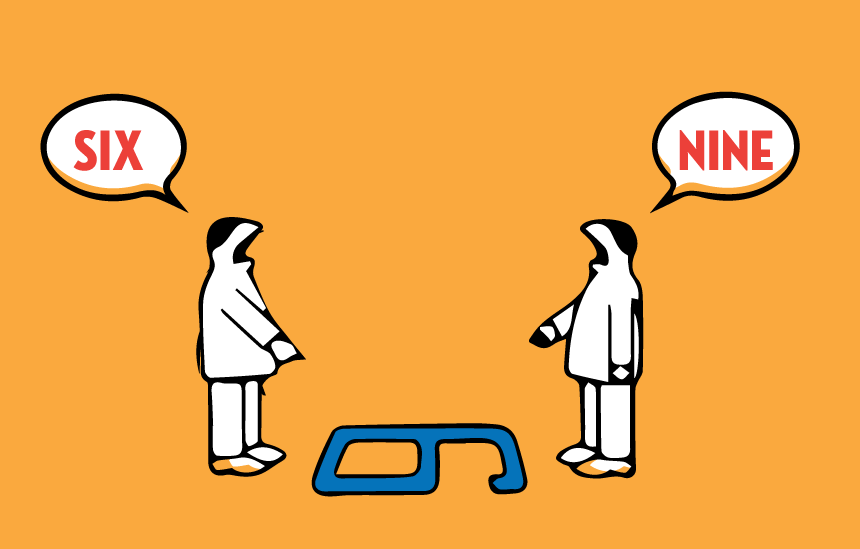Ubuntu and Other Meanings of Life
What Do You Live For?
Jul 3, 2024
Hello!
Welcome to the Insights, Innovation, and Economics blog. If you’re new here, feel free to read my general Introduction to the Blog to understand more about the blog. If you’re returning, thank you, and hope you have a great read!
Thesis: Finding and putting meaning into your life is extremely important, yet many people think the exercise is time-consuming and pointless. Many philosophies provide answers to what the meaning of life is, and there is a wide variety of different answers. What do you choose?

Credit Medium
Life
Life (noun):
Life is a complicated word. People have tried to define it as you see above, yet life is still so abstract.
We’re alive, but what does it mean?
A basic view is that life is naturally without any meaning. Put simply, you’re someone that is aware of yourself and your existence on Earth and in relation to the universe, the world, and other people.
That’s what your life is on a simple level.
Yet, people haven’t been satisfied with that answer. They feel life has more meaning.
They pose questions like this:
- What does it mean to be alive, to be living?
- Why are we alive?
- Why do I do what I do?
- What is the purpose of being alive?
- What is the meaning of life?
Today, I’m going to try to explain from my viewpoint, some of the meanings of life (and also add some commentary based on my value structure).

Credit Happiness.com
What is the meaning of life?
Some have claimed this is a falsely leading question as it tries to assign an artificial meaning to a thing that doesn’t need or otherwise have that meaning. Essentially they get mad at people trying to make life have a meaning they don’t think it has.
This viewpoint is complicated, so I chose to acknowledge it, yet operate under the assumption that life does have some meaning–as this allows this blog post to work (if you’re interested about this, I’ll chat later about Nihilism).
So, again stated, our goal today is to discuss a variety of different meanings of life that have been posed by a variety of people, institutions, religions, and more. Here’s a brief breakdown of what we’ll cover today:
- Ubuntu
- Ikigai
- Logical Positivism
- Subjectivism
- Theism
- Aristotelianism
- Nihilism
- & other honorable mentions

Credit Listening Partnership
Ubuntu
The Latin phrase, “cogito, ergo sum” was famously coined by philosopher Rene Descartes in 1637. Translated, it means “I think, therefore I am.”
This phrase laid the groundwork for how we conceptualize and think about our sense of self in the West for years.
Yet, what if there’s a different way to think about this, specifically a non-Western philosophy?
Enter the concept of Ubuntu. Instead of “I think, therefore I am”, ubuntu gives us “I am because we are.”
Ubuntu is a African philosophy based on a concept in which your sense of self is shaped by your relationships with other people. Contrary to the rampant individualism present in Western society today, ubuntu emphasizes others ahead of yourself. Phrased another way, ubuntu could mean “a person is a person through other people.”
The African Journal of Social Work described ubuntu as the following:
What does ubuntu look like in practice?
In many African communities, people live in close-knit environments where neighbors, family, and friends support one another. This could involve sharing resources or providing assistance when needed.
Ubuntu encourages a spirit of hospitality and generosity towards others, even strangers. In many African cultures, locals welcome visitors warmly and share what they have, even if resources are limited.
Ultimately, ubuntu emphasizes a sense of collective responsibility where individuals are accountable not only to themselves, but also to the community as a whole. No person is an island. No person can do it all alone.

Credit Medium
Ikigai
Ikigai, translated from Japanese, means “a reason for being.” The term is a combination of the Japanese words ‘iki’--meaning ‘to live’, and ‘gai’--meaning ‘reason’.
Ikigai is a concept of discovering your purpose through exploring the intersection of what you love, what you’re good at, what the world needs, and what you can be paid for. If you’re interested in these, see the diagram above which details out the intersectionality between all of these.
The whole idea behind ikigai is the thought that finding purpose is often about locating the intersection of the skills you have and the things you love. Put deeper, ikigai says that when you’re aligned with your purpose, the value of life and potential for happiness appears.
What does ikigai look like in practice?
Ikigai encourages finding fulfillment and satisfaction in your work, but not at the expense of the other aspects of your life. The philosophy promotes a balanced approach where work, leisure, personal growth, and relationships are all valued and nurtured.
People practicing ikigai often pursue activities or hobbies that bring them joy and a sense of purpose, even if they don’t lead to direct financial benefits. In addition, people often contribute to the well-being of their community or society.
Ultimately, ikigai encourages people to identify their core values and live in a way that aligns with those values. This could involve making career or lifestyle choices that reflect their beliefs, priorities, and what they consider truly meaningful.

Credit Quora
Logical Positivism
Logical positivism is a philosophy developed by members of the Vienna Circle in the 1920s. Yet, widespread interest in logical positivism significantly dropped in the 1950s, and by 1970 it had widely ceased to exist as a philosophical movement.
While popular, logical positivism was a movement that emphasized analytic or conclusively verifiable facts. Only statements verifiable through direct observation or logical proof are meaningful in terms of conveying true value. Put simply, logical positivism is all about using logic and facts.
However brief its lifespan, logical positivism does offer key intuition into the potential meaning of life.
So, what does logical positivism say is the meaning of life?
Life has no meaning until you give it one.
Intuitively this may make immediate sense to you. Phrased another way, your life has no meaning until you have something to live for.
For some people, however, this philosophy doesn’t make sense. You may believe that life has immediate meaning, inherent meaning. This meaning existed before you were born and will exist after you were born.
This brings up a very interesting point: logical positivism doesn’t say that life just has one ultimate meaning. Life could have a different meaning for each person. Woah, that’s kind of an exciting idea!
Introducing:

Credit Medium
Subjectivism
Subjectivism is an old philosophy, dating back to Descartes and Hobbs. Subjectivism is the theory that perception is reality, and there is no underlying, true reality that exists independent of a person’s perception.
Subjectivism does not claim that everything is an illusion or there is no such thing as reality. It claims that the nature of reality is merely dependent on the perception of the individual. Put another way, subjectivism says that truth actually changes to fit the individual.
Subjectivism essentially says that truth is subjective and that it is based on the person’s mind and experiences.
Where it gets complicated is subjectivism is the view that what is true for one person may not be true for another. Part of true wisdom is understanding that other people think, see, and feel differently. Yet, two very different people can believe objectively the same truth, even if their way of learning and relating to that truth is different.
So, what does subjectivism say is the meaning of life?
Broadly, life’s meaning is different for every person.
However, you may believe that life only has one meaning, and that meaning applies to everyone.
Introducing:

Credit Adobe Stock
Theism
Theism (opposite of atheism), is a belief in the existence of a god or gods. This belief is usually coupled with religious beliefs.
It’s difficult to get into the depths of theism without running directly into religious beliefs, so I’ll keep this section brief.
So, what does theism say is the meaning of life?
Put vaguely, theism states the meaning of life is to follow God’s will.
But, instead of having a religious view, you may believe that life has one meaning, but that meaning is different than theism or religion.
Introducing:

Credit Adobe Stock
Aristotelianism
Aristotelianism is a philosophy based on the work of Aristotle. Unfortunately, or maybe fortunately, on how you look at it, Aristotle had a vast breadth of different beliefs on a variety of subjects, meaning Aristotelianism is difficult to fully flush out in a couple of paragraphs.
If you’re interested in more resources, see HERE, HERE, or HERE.
Put briefly, Aristotelianism is characterized by deductive logic and an analytic method in the study of natural philosophy and metaphysics. The philosophy takes a critical approach to existing or hypothetical doctrines with an emphasis on knowledge that can be acquired by natural means through the senses and the exercise of reason.
So, what does aristotelianism say is the meaning of life?
Aristotelianism is a simple philosophy: the meaning of life is to be a good person.
However, you may believe that life doesn’t have any meaning at all.
Introducing:

Credit The MIT Press Reader
Nihilism
Nihilism is a philosophy developed in Russia in the 1800s. The term was popularized by Friedrich Nietzsche to describe the disintegration of traditional morality in the West.
Nihilism is a philosophy that traditional values and beliefs are baseless and that existence itself is senseless and useless. Furthermore, nihilism rejects the possibility of knowledge or communication–put simply, nothing can be known or communicated.
Nihilism is often associated with extreme pessimism and a radical skepticism that condemns existence.
The Internet Encyclopedia of Philosophy by the University of Texas Martin states:
Over time, there have been a variety of different nihilist viewpoints, ranging from the thought human values are baseless, life is meaningless, knowledge is impossible, or that some entities do not exist or are meaningless/pointless.
It’s a complicated viewpoint that isn’t super popular today, but if you were a nihilist, you would believe life has no meaning at all – a very cynical position.
Hopefully, unlike the nihilists, you believe life has at least a little meaning. If you do, you may believe in one of the other meanings previously discussed, or you may believe something on our honorable mention list (I don’t have the time required to discuss all of these – although I could do it in the future if you are interested).

Credit Christianity.com
Honorable Mentions
I’ve highlighted my favorites (the ones that I think are interesting to discuss further) in bold.
Absurdism - Stop trying to find a meaning for life, just live
Liberalism - Defend individual liberty
Confucianism - Live an ordinary life/fulfill your duties to others
Cynicism - Be self-sufficient
Daoism - Follow the way, but no one knows exactly what that is
Determinism - Simply accept that everything is pre-determined
Epicureanism - Free yourself from pain
Existentialism - Make decisions and be positive
Hedonism - Have pleasure now
Humanism - Act in self-interest and for common good
Kantianism - Do as you’d have others do/do your duty
Legalism - Learn practical things
Mohism - Love people impartially
Natural Pantheism - Care for nature
Objectivism - Be productive
Platonism - Acquire maximum knowledge
Pragmatism - Bring the most good/value to humans
Quietism - Asking questions about the meaning of life only leads to more confusion
Solipsism - You only know you exist
Stoicism - Be logical and try not to suffer
These are great, but I think the best summary of potential meanings for your life is this image:

Credit Reddit
Conclusion
What should you or I take from the above information about the various popular meanings of life?
Most importantly, I think that you should understand that every person should have a meaning for their life. You, me, your family, your neighbors, random strangers, everyone should have a meaning to their life.
Why?
It makes life easier. Having a meaning to your life gives you a sense of purpose and direction. It helps people make decisions, set goals, and find motivation in their pursuits. Without a sense of meaning, life can feel aimless and unfulfilling.
In addition, finding meaning in life has been linked to improved mental health, greater life satisfaction, and a more positive outlook. Exploring the meaning of life encourages people to reflect on their values, beliefs, and what truly matters to them.
This is all great, but it only works if you know the meaning of your life. Finding that meaning in the first place is extremely complicated and may take most of your life. It’s up to you to find and discover it.
Go out, explore the world, understand your values and beliefs, etc.
The search for meaning often involves connecting with something larger than oneself, whether it’s a belief system, a cause, or a community. Contemplating the meaning of life can inspire you to consider your legacy and the impact you want to have on the world around you.
To finish, I’ll leave you with the following 3 quotes:
― Joseph Campbell
―Nelson Henderson
―Seneca
Anywho, that’s all for today.
-Drew Jackson
Disclaimer:
The views expressed in this blog are my own and do not represent the views of any companies I currently work for or have previously worked for. This blog does not contain financial advice - it is for informational and educational purposes only. Investing contains risks and readers should conduct their own due diligence and/or consult a financial advisor before making any investment decisions. This blog has not been sponsored or endorsed by any companies mentioned.






